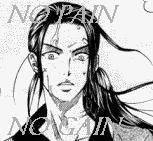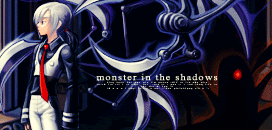Post by tessa on Apr 1, 2007 3:40:28 GMT -5
Big news and this isn't an April Fool's Joke either.
Kimeru and Aiba (plus Gaku) are going to be in a musical together. The musical?
This thing called Pippin. Now, when I first saw the name, I was like, uh, LoTR? But no. It's crack.
Synopsis stolen from Wikipedia:
The play begins with a leading player of a troupe and the actors in various costume pieces of several different time periods. The Leading Player (often said to represent the Devil, although this is unapparent at the start) invites the audience to join them in a story about a boy prince searching for fulfillment ("Magic to Do"). They reveal they do not have a person to play the title character, and they select a person from the audience to come up to play this role. (The audience member they select is actually a shill.) Pippin tells the scholars of the time of his dreams ("Corner of the Sky"), and they happily applaud Pippin on his ambitious quest for an extraordinary life. Pippin then returns home to the castle and estate of Charlemagne (King Charles), his father. Charles and Pippin don't get a chance to communicate often, as they are interrupted by nobles, soldiers, and couriers vying for Charles' attention ("Welcome Home"). Pippin also meets up with his step-mother Fastrada, and her dim-witted son Lewis. Charles and Lewis are planning on going into battle against the Visigoths soon, and Pippin begs Charles to take him along so as to prove himself. Charles reluctantly agrees and proceeds to explain a battle plan to his men ("War is a Science").
Once in battle, the Leading Player re-enters to lead the troupe in a mock battle using top hats, canes, and fancy jazz as to glorify warfare and violence ("Glory"). This charade of war does not appeal to Pippin, and the boy flees into the countryside. The Leading Player tells the audience of Pippin's travel through the country, until he stops at his exiled grandmother's estate ("Simple Joys"). There, Berthe (his grandmother, and Charles' mother, exiled by Fastrada) tells Pippin not to be so serious and to live a little ("No Time At All"). Pippin takes this advice and decides to search for something a bit more lighthearted. He chooses "the flesh," sex ("With You"). After an overwhelming orgy of sexual activity, Pippin realizes the true nature of sex as an all-consuming entity, and begs the Leading Player to halt the troupe in their erotic dances.
The Leading Player then tells Pippin that perhaps he should fight tyranny, and uses Charles as a perfect example of an unenlightened tyrant to fight. Pippin plans a revolution, and Fastrada is delighted to hear that perhaps Charles and Pippin will both perish so that her beloved Lewis can become king. Fastrada arranges the murder of Charles, and Pippin falls victim to her plot ("Spread a Little Sunshine"). While Charles is praying at Arles, Pippin murders him, and becomes the new king ("Morning Glow"). However, after petitions from the masses, Pippin finds himself being just as tyrannical as Charles. He begs the Leading Player to bring his slain father back to life, and the Leading Player does so. (This provides the first clear indication that the Leading Player has powers of a metaphysical nature.)
Pippin, left without direction, then travels ("On the Right Track") and stumbles upon an estate owned by Catherine ("Kind of Woman"), a widow, with a small boy, Theo. From the start, it is clear that the Leading Player is concerned with Catherine's actual attraction to Pippin—after all, she is but a player playing a part in his yet-to-be-unfolded plan. At first, Pippin thinks himself above such boring manorial duties as sweeping, repairs, and milking cows ("Extraordinary"), but eventually he comforts Theo on the sickness and eventual death of his pet ("Prayer For A Duck") and warms up to the lovely Catherine ("Love Song"). However, as time goes by, Pippin feels that he must leave the estate to continue searching for his purpose. Catherine is heartbroken, and reflects on him (much to the Leading Player's anger and surprise) ("I Guess I'll Miss the Man").
All alone on a stage, Pippin is surrounded by the Leading Player and the various troupe members. They all suggest that Pippin complete the most perfect act ever: the Finale. They tell Pippin to jump into a box of fire, light himself up, and "become one with the flame." (At this point, the audience finally comes to the realization that the lead player is the Devil.) Pippin is reluctant, but agrees that perhaps suicide is the best way to go ("Finale"), but he is stopped by his natural misgivings and also by one actress from the troupe—the woman playing Catherine. Catherine and her son Theo stand by Pippin and defy the script, the Leading Player, and Fastrada. Pippin comes to the realization that the widow's home was the only place where he was truly happy ("I Never Came Close My Love"). After removing the sets, lighting, makeup, and costumes from the stage (to no success at dissuading Pippin), The Leading Player becomes furious and calls off the show, telling the rest of the troupe and the orchestra to pack up and leave Pippin, Catherine, and her son alone forever, trapped on an empty, dark and silent stage. Pippin realizes that he has given up his extraordinary purpose for the simplest and most ordinary life of all, and he is finally a happy man.
Kimeru and Aiba (plus Gaku) are going to be in a musical together. The musical?
This thing called Pippin. Now, when I first saw the name, I was like, uh, LoTR? But no. It's crack.
Synopsis stolen from Wikipedia:
The play begins with a leading player of a troupe and the actors in various costume pieces of several different time periods. The Leading Player (often said to represent the Devil, although this is unapparent at the start) invites the audience to join them in a story about a boy prince searching for fulfillment ("Magic to Do"). They reveal they do not have a person to play the title character, and they select a person from the audience to come up to play this role. (The audience member they select is actually a shill.) Pippin tells the scholars of the time of his dreams ("Corner of the Sky"), and they happily applaud Pippin on his ambitious quest for an extraordinary life. Pippin then returns home to the castle and estate of Charlemagne (King Charles), his father. Charles and Pippin don't get a chance to communicate often, as they are interrupted by nobles, soldiers, and couriers vying for Charles' attention ("Welcome Home"). Pippin also meets up with his step-mother Fastrada, and her dim-witted son Lewis. Charles and Lewis are planning on going into battle against the Visigoths soon, and Pippin begs Charles to take him along so as to prove himself. Charles reluctantly agrees and proceeds to explain a battle plan to his men ("War is a Science").
Once in battle, the Leading Player re-enters to lead the troupe in a mock battle using top hats, canes, and fancy jazz as to glorify warfare and violence ("Glory"). This charade of war does not appeal to Pippin, and the boy flees into the countryside. The Leading Player tells the audience of Pippin's travel through the country, until he stops at his exiled grandmother's estate ("Simple Joys"). There, Berthe (his grandmother, and Charles' mother, exiled by Fastrada) tells Pippin not to be so serious and to live a little ("No Time At All"). Pippin takes this advice and decides to search for something a bit more lighthearted. He chooses "the flesh," sex ("With You"). After an overwhelming orgy of sexual activity, Pippin realizes the true nature of sex as an all-consuming entity, and begs the Leading Player to halt the troupe in their erotic dances.
The Leading Player then tells Pippin that perhaps he should fight tyranny, and uses Charles as a perfect example of an unenlightened tyrant to fight. Pippin plans a revolution, and Fastrada is delighted to hear that perhaps Charles and Pippin will both perish so that her beloved Lewis can become king. Fastrada arranges the murder of Charles, and Pippin falls victim to her plot ("Spread a Little Sunshine"). While Charles is praying at Arles, Pippin murders him, and becomes the new king ("Morning Glow"). However, after petitions from the masses, Pippin finds himself being just as tyrannical as Charles. He begs the Leading Player to bring his slain father back to life, and the Leading Player does so. (This provides the first clear indication that the Leading Player has powers of a metaphysical nature.)
Pippin, left without direction, then travels ("On the Right Track") and stumbles upon an estate owned by Catherine ("Kind of Woman"), a widow, with a small boy, Theo. From the start, it is clear that the Leading Player is concerned with Catherine's actual attraction to Pippin—after all, she is but a player playing a part in his yet-to-be-unfolded plan. At first, Pippin thinks himself above such boring manorial duties as sweeping, repairs, and milking cows ("Extraordinary"), but eventually he comforts Theo on the sickness and eventual death of his pet ("Prayer For A Duck") and warms up to the lovely Catherine ("Love Song"). However, as time goes by, Pippin feels that he must leave the estate to continue searching for his purpose. Catherine is heartbroken, and reflects on him (much to the Leading Player's anger and surprise) ("I Guess I'll Miss the Man").
All alone on a stage, Pippin is surrounded by the Leading Player and the various troupe members. They all suggest that Pippin complete the most perfect act ever: the Finale. They tell Pippin to jump into a box of fire, light himself up, and "become one with the flame." (At this point, the audience finally comes to the realization that the lead player is the Devil.) Pippin is reluctant, but agrees that perhaps suicide is the best way to go ("Finale"), but he is stopped by his natural misgivings and also by one actress from the troupe—the woman playing Catherine. Catherine and her son Theo stand by Pippin and defy the script, the Leading Player, and Fastrada. Pippin comes to the realization that the widow's home was the only place where he was truly happy ("I Never Came Close My Love"). After removing the sets, lighting, makeup, and costumes from the stage (to no success at dissuading Pippin), The Leading Player becomes furious and calls off the show, telling the rest of the troupe and the orchestra to pack up and leave Pippin, Catherine, and her son alone forever, trapped on an empty, dark and silent stage. Pippin realizes that he has given up his extraordinary purpose for the simplest and most ordinary life of all, and he is finally a happy man.






 ) with Nagayan. This fall, he's going to be in the most crackiest crack I've ever heard of with Kime.
) with Nagayan. This fall, he's going to be in the most crackiest crack I've ever heard of with Kime.![Hyper [ SLEEP ] Saphy Avatar](http://img134.imageshack.us/img134/7662/pot858pj5.gif)



